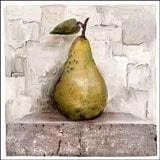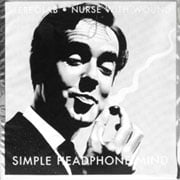| Author |
 Topic Search Topic Search  Topic Options Topic Options
|
SteveG 
Forum Senior Member


Joined: April 11 2014
Location: Kyiv In Spirit
Status: Offline
Points: 20503
|
 Topic: Why is the sum often greater than the parts? Topic: Why is the sum often greater than the parts?
Posted: July 18 2015 at 09:38 |
|
It's my personal opinion that prog artists are more creative and dynamic when part of a musical group as opposed to being individual artists. Except for the Lone Ranger Brian Eno types, I find this to be true of bands from Genesis and Floyd to Tangerine Dream. Artists who later seek solo status like Steven Wilson or Ian Anderson never attain the creative heights that were evident in their earlier work as the group arrangements seem to be 'tacked on' to a song instead of part of an organic arrangement contributed by band members. To get off the obvious Wilson/Anderson backlash, why were individual members of Yes never as successful as any Yes band endeavors (albums)? Again, this does not cover all artists, but I feel that it does appear to cover a large extent. So, why is the sum often greater than the parts?
Edited by SteveG - July 18 2015 at 09:51
|
 |
Disparate Times 
Forum Senior Member


Joined: July 12 2015
Location: Rust belt
Status: Offline
Points: 261
|
 Posted: July 18 2015 at 09:56 Posted: July 18 2015 at 09:56 |
|
Could be the artists have moved beyond their creative prime, at least those who moved on later. Having multiple composers working together usual brings out the best in everyone involved. Someone in gentle giant (can't remember who) said they were always trying to impress each other.
|
 |
RockHound 
Forum Senior Member


Joined: March 03 2013
Location: USA
Status: Offline
Points: 518
|
 Posted: July 18 2015 at 10:54 Posted: July 18 2015 at 10:54 |
Interesting post. I think blending diverse talent with effective interpersonal communication and friendly competition helps achieve the Gestalt to which you refer. Once communication starts breaking down, the great bands are never quite the same. The Beatles appear to have recognized this, and it seems they took extra effort to pull themselves up by their bootstraps and make Abbey Road a fitting farewell.
Another point to consider is that even the greatest composers and musicians tend to contribute only a few pieces to the greater public consciousness. Indeed, the classic prog bands achieved their greatest contributions in early adulthood, which is typically when creativity tends to shine brightest. I think this makes the great runs of classic prog albums (e.g., The Yes Album through Going for the One; Nursery Cryme through Wind and Wuthering) all the more remarkable. After all, creative bands are very Fragile.
Composers who produce major contributions throughout their career tend to be in Bach/Beethoven/Mahler/Shostakovitch territory.
Edited by RockHound - July 18 2015 at 10:55
|
 |
fredyair 
Forum Senior Member


Joined: October 18 2007
Location: United States
Status: Offline
Points: 160
|
 Posted: July 18 2015 at 13:06 Posted: July 18 2015 at 13:06 |
Interesting post, evidently when a solo artist develop a song there's only one point of view and when we are talking about prog music we like something rich, multifaceted, expanding, that is usually the case when a group of people share their opinions and add their own creativity to the original idea. Nonetheless, there are some outstanding solo efforts, but you can still see the straight arrow focus and self-conscious approach.
|
|
Long live Progresive music!
|
 |
moshkito 
Forum Senior Member


Joined: January 04 2007
Location: Grok City
Status: Offline
Points: 16163
|
 Posted: July 18 2015 at 13:37 Posted: July 18 2015 at 13:37 |
Hi, Not sure this is an easy post to reply to. We do not know, how much of the original music/composers we know from history, had their music altered. It may be a movie, but when you see "Amadeus" or All the Mornings of the World" or other movies, you get the idea that music was manipulated and changed, to fit a group or a court, and it is possible, if Salieri is a good example or not is hard to define, that there was more to that "music' than we know. There really are not enough studies in this area. Remember that all of it, was MANUALLY copied and then if there was teaching, it could, very easily not even be done off a copy of the work itself to look at, and taught from memory or from an idealistic concept. Our 20th century made it all visible, and the part that was hard is that it could not reconcile a "group" with a "composer". I look at Genesis, Pink Floyd, Beatles, Rolling Stones, as ONE ENTITY, each, and individually, none of them ever came close to the group. FOR ME, they are a composer in every sense of the word, and thus, if Rick Wakeman or Peter Gabriel leave, I don't care ... the group and its etheric concepts, is what created the music that matters to so many of us ... not one person! The worst example for me, is Peter Hammill. I like his solo work better than the Van der Graaf Generator stuff ... it is more personal, valuable for me and intimately defined work, than the stuff the group does, which while I like it a heck of a lot, is more scattered everywhere, than his personal work is. For me, this is more confusing than helpful. But I am not sure that everyone defines their listening of music like this at all. Again, this is a very tough topic to define and discuss. However, I do believe that we're allowing a commerciality concept to define music for us, and then a star, or person, becomes more important than the original. There would not be THAT original, without that specific combination of people in that time and place. It would have been different. So, trying to surmise otherwise is not helping, I do not think.
|
|
Music is not just for listening ... it is for LIVING ... you got to feel it to know what's it about! Not being told!
www.pedrosena.com
|
 |
Atavachron 
Special Collaborator


Honorary Collaborator
Joined: September 30 2006
Location: Pearland
Status: Offline
Points: 64352
|
 Posted: July 18 2015 at 13:57 Posted: July 18 2015 at 13:57 |
|
Gabriel more creative and dynamic with Genesis? No I think not. Bill Bruford more creative and dynamic with Yes or Crimson? Not really. Holdsworth better with Bruford? Not at all. And what about Hackett? Liberated by his solo work. Even Robert Plant has had a much more interesting career post-Zeppelin-- the fact that his voice is not what it was is irrelevant, his music is far more diverse and progressive. Some even prefer Gilmour over Floyd
What you're saying is often true, but just as often not. Solo outings can be among an artist's best work.
|
|
"Too often we enjoy the comfort of opinion without the discomfort of thought." -- John F. Kennedy
|
 |
Evolver 
Special Collaborator


Crossover & JR/F/Canterbury Teams
Joined: October 22 2005
Location: The Idiocracy
Status: Offline
Points: 5482
|
 Posted: July 18 2015 at 14:00 Posted: July 18 2015 at 14:00 |
I think, as stated above by others, the dynamics of a group creating the arrangement of a song, rather than an individual musician, is the primary cause of this phenomenon. Rock musicians (and probably most musicians) tend to write around their own instrument. A guitarist will write guitar parts that showcase their skills, and often write the other parts to fill in the rest of the music. It's most obvious in the case of one man band recordings. Most often, it is the drums and bass that suffer in this process, but nearly always, there is a sense that something is missing. That is not to say that every solo artists does this, but the few who buck the trend tend to be more complete composers, rather than a musician who had an idea for a song.
|
|
Trust me. I know what I'm doing.
|
 |
SteveG 
Forum Senior Member


Joined: April 11 2014
Location: Kyiv In Spirit
Status: Offline
Points: 20503
|
 Posted: July 18 2015 at 14:39 Posted: July 18 2015 at 14:39 |
 Atavachron wrote: Atavachron wrote:
Gabriel more creative and dynamic with Genesis? No I think not. Bill Bruford more creative and dynamic with Yes or Crimson? Not really. Holdsworth better with Bruford? Not at all. And what about Hackett? Liberated by his solo work. Even Robert Plant has had a much more interesting career post-Zeppelin-- the fact that his voice is not what it was is irrelevant, his music is far more diverse and progressive. Some even prefer Gilmour over Floyd
What you're saying is often true, but just as often not. Solo outings can be among an artist's best work.
|
I kindly disagree with all of your examples except Gabriel without Genesis. And Plant better without Zep? Perhaps if I didn't fall asleep through his solo albums, I could make a comment.
|
 |
Atavachron 
Special Collaborator


Honorary Collaborator
Joined: September 30 2006
Location: Pearland
Status: Offline
Points: 64352
|
 Posted: July 18 2015 at 14:52 Posted: July 18 2015 at 14:52 |
|
Not better without Zep, but rather more liberated and unique.
|
|
"Too often we enjoy the comfort of opinion without the discomfort of thought." -- John F. Kennedy
|
 |
SteveG 
Forum Senior Member


Joined: April 11 2014
Location: Kyiv In Spirit
Status: Offline
Points: 20503
|
 Posted: July 18 2015 at 14:55 Posted: July 18 2015 at 14:55 |
|
^Well, it doesn't sound better to me, but if you feel that qualifiers somehow improve he's output, then lay them on.
|
 |
Atavachron 
Special Collaborator


Honorary Collaborator
Joined: September 30 2006
Location: Pearland
Status: Offline
Points: 64352
|
 Posted: July 18 2015 at 15:01 Posted: July 18 2015 at 15:01 |
|
Zeppelin has been dead for thirty-five years, and did the right thing by disbanding. Their output is brilliant but cut-short and, like the Beatles, may or may not have remained relevant. Plant didn't just progress, he digressed, and at this point has developed one of the most impressive careers in rock history.
|
|
"Too often we enjoy the comfort of opinion without the discomfort of thought." -- John F. Kennedy
|
 |
SteveG 
Forum Senior Member


Joined: April 11 2014
Location: Kyiv In Spirit
Status: Offline
Points: 20503
|
 Posted: July 18 2015 at 15:10 Posted: July 18 2015 at 15:10 |
|
^I agree that there are solo artists that thrive without a group context, but Plant leaves me cold. It's a matter of personal taste, but I doubt other's see him a renaissance figure in rock. Just good for what he did and barely remembered now. Even on classic radio stations, sad to say.
|
 |
Atavachron 
Special Collaborator


Honorary Collaborator
Joined: September 30 2006
Location: Pearland
Status: Offline
Points: 64352
|
 Posted: July 18 2015 at 15:12 Posted: July 18 2015 at 15:12 |
|
There's no doubt a good band is a rare and wonderful thing to be held on to as long as possible.
|
|
"Too often we enjoy the comfort of opinion without the discomfort of thought." -- John F. Kennedy
|
 |
lazland 
Prog Reviewer


Joined: October 28 2008
Location: Wales
Status: Offline
Points: 13249
|
 Posted: July 18 2015 at 15:40 Posted: July 18 2015 at 15:40 |
|
I will mention just a couple of the artists that Steve has raised.
Steven Wilson, IMO, has utterly surpassed everything he did with Porcupine Tree. He has become, by far, the most important modern progressive rock artist, with a series now of superlative solo efforts.
Gabriel moved on from Genesis. I remember well an interview with him in Melody Maker on the release of the third solo album, back in 1980. They, rightly, compared his solo work as peeling away the outer layers of an onion, until you got to the core, and revealed the true nature of the object. Of course, the third album was the one where they thought the work revealed the true .gabriel, away from the constraints and outer layer that was Genesis. It was a good analogy, and I think that Gabriel has achieved more than he ever would have done by sticking with Banks as a writing partner.
True talent and genius will always shine through, whether in a band or solo situation. I have said before that I regard Roger Waters' finest piece being reserved post Floyd.
|
|
Enhance your life. Get down to www.lazland.org
|
 |
RockHound 
Forum Senior Member


Joined: March 03 2013
Location: USA
Status: Offline
Points: 518
|
 Posted: July 18 2015 at 17:39 Posted: July 18 2015 at 17:39 |
 moshkito wrote: moshkito wrote:
We do not know, how much of the original music/composers we know from history, had their music altered. It may be a movie, but when you see "Amadeus" or All the Mornings of the World" or other movies, you get the idea that music was manipulated and changed, to fit a group or a court, and it is possible, if Salieri is a good example or not is hard to define, that there was more to that "music' than we know. There really are not enough studies in this area. Remember that all of it, was MANUALLY copied and then if there was teaching, it could, very easily not even be done off a copy of the work itself to look at, and taught from memory or from an idealistic concept. |
This is a discussion my uncle (former flautist with the Cleveland Orchestra and academic Bach scholar) have carried on over many years. There are many autograph manuscripts from the Baroque era onward, and so we do know something about the structure and instrumentation specified in some original works - at least it's not entirely as bad as interpreting the Dead Sea Scrolls.
The big issues are meter (time signatures were often not specified) and ornamentation. This problem persists to some extent through Beethoven, who did commonly provide metronome markings. However, we really don't know much about his metronome, so the markings are considered as relative. Another problem is multiple editions, some of which were penned by the original composers. A great example of this the multiple editions of Bruckner's symphonies, which he continually revised as he was influenced to and fro by the Wagnerians and Brahmsians. Some composers and publishers would revise works for specific performances so they could cater to the capabilities and instrumentation of the ensemble at hand.
Works like piano and violin sonatas were commonly published so they could be played in parlors and salons, and there would be few instances when the player could know much about what the composer really wanted beyond what fit within the styles of the day. Obviously, nobody had the benefit of recorded performances, nor could players necessarily peel off to Vienna to learn how it was supposed to be done. Thus much of classical performance was arguably a subject of interpretation right out of the gate, and interpretation styles continue to evolve generation after generation.
But one thing stands out about the great composers regardless of the uncertainties of interpretation - their stuff is just plain great in the hands of skilled conductors and performers.
Our conception of modern popular music, including prog, is tied very strongly to the personalities and original recordings of the writers/performers. Will future performances of the great works of the Progressive Rock Gestalt rigidly follow the original recordings, or will they somehow adapt to the sensibilities of the time when they are performed?
I can just imagine a reincarnated Leopold Stokowski leading a rehearsal of a future performance of Tarkus. My way or the highway! Now jam it up, boys and girls!
And now... back to our regularly scheduled thread...
|
 |
Stereolab 
Forum Senior Member


Joined: June 22 2014
Location: NorCal
Status: Offline
Points: 126
|
 Posted: July 18 2015 at 23:38 Posted: July 18 2015 at 23:38 |
 moshkito wrote: moshkito wrote:
The worst example for me, is Peter Hammill. I like his solo work better than the Van der Graaf Generator stuff ... it is more personal, valuable for me and intimately defined work, than the stuff the group does, which while I like it a heck of a lot, is more scattered everywhere, than his personal work is. For me, this is more confusing than helpful.
|
Interesting, I was going to bring up Hammill/VDGG as an example that demonstrate's the OP's point. To me Hammill's solo work is meandering and frequently boring. Whereas VDGG focused the genius of Peter and the other band members into a series of brilliantly dark, innovative, emotional, but still structured and eminently listenable albums.
I think the main reason better music is frequently made in the confines of a band than solo is that when going solo, there are fewer people around with the clout to tell you that what you're doing at some particular moment isn't working...
Edited by Stereolab - July 18 2015 at 23:39
|
 |
Intruder 
Forum Senior Member

Joined: May 13 2005
Status: Offline
Points: 2086
|
 Posted: July 19 2015 at 05:36 Posted: July 19 2015 at 05:36 |
Expectations, plain and simple. When members of popular bands go solo, fans expect them to stay in their comfort zone and not dive into a new sound. Plus, some solo artists - think Roger Daltrey - really benefited from being around talented people in their respective bands. Without that talent around, things get stale pretty quickly.
|
|
I like to feel the suspense when you're certain you know I am there.....
|
 |
PrognosticMind 
Forum Senior Member


Joined: August 02 2014
Location: New Hampshire
Status: Offline
Points: 1195
|
 Posted: July 19 2015 at 06:25 Posted: July 19 2015 at 06:25 |
I've always used the phrase "The sum is greater than the parts" to describe my favorite (and IMHO the best) prog bands, such as Yes, Genesis, Gentle Giant, etc.
My theory is that most of those guys were all peak performers on their respective instruments, while also having the discernment required to know when to "back off" a bit, and let the band breathe. Yes is still the pinnacle of such a statement for me.
|
|
"A squid eating dough in a polyethylene bag is fast and bulbous. Got me?"
|
 |
Manuel 
Forum Senior Member


Joined: March 09 2007
Location: United States
Status: Offline
Points: 12382
|
 Posted: July 19 2015 at 11:12 Posted: July 19 2015 at 11:12 |
|
This is an issue I've always ponder about. My thoughts on this is that even though some artist compose the music, some additional material is provided by the other members of the band. Taking Jethro Tull as an example of a sole composer (Ian Anderson), there has been a lot of material written by Martin Barre, to which Ian Anderson himself acknowledge, that has never been credited to him. The Anderson-Howe credits are also an example of collaborations which also benefited by Chris Squire and Rich Wakeman's ideas. The whole "The Lamb Lies Down On Broadway" was credited to genesis, but some pieces were individually written, so there's a lot more work in composition than the credits in an album tells us.
|
 |
SteveG 
Forum Senior Member


Joined: April 11 2014
Location: Kyiv In Spirit
Status: Offline
Points: 20503
|
 Posted: July 19 2015 at 11:23 Posted: July 19 2015 at 11:23 |
 lazland wrote: lazland wrote:
I will mention just a couple of the artists that Steve has raised.
Steven Wilson, IMO, has utterly surpassed everything he did with Porcupine Tree. He has become, by far, the most important modern progressive rock artist, with a series now of superlative solo efforts.
Gabriel moved on from Genesis. I remember well an interview with him in Melody Maker on the release of the third solo album, back in 1980. They, rightly, compared his solo work as peeling away the outer layers of an onion, until you got to the core, and revealed the true nature of the object. Of course, the third album was the one where they thought the work revealed the true .gabriel, away from the constraints and outer layer that was Genesis. It was a good analogy, and I think that Gabriel has achieved more than he ever would have done by sticking with Banks as a writing partner.
True talent and genius will always shine through, whether in a band or solo situation. I have said before that I regard Roger Waters' finest piece being reserved post Floyd. |
I'm not disputing your tastes, Steve, but I think that Wilson, Gabriel and solo Waters would be some of the exceptions to the rule, as they say.
|
 |
/PAlogo_v2.gif)


